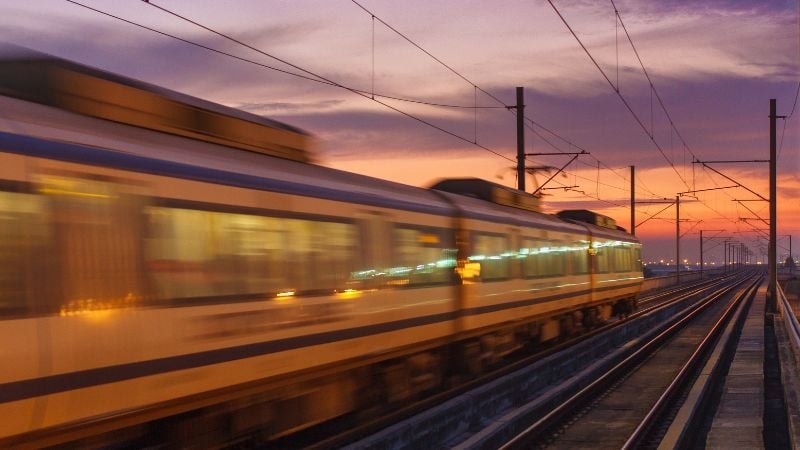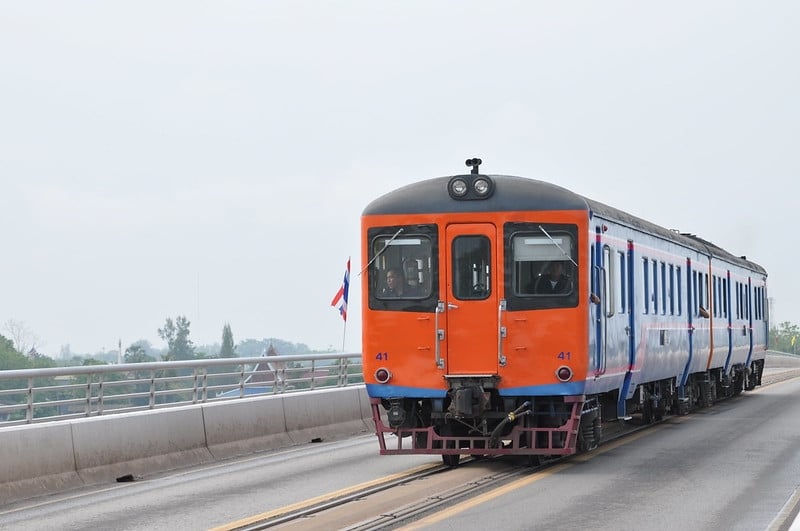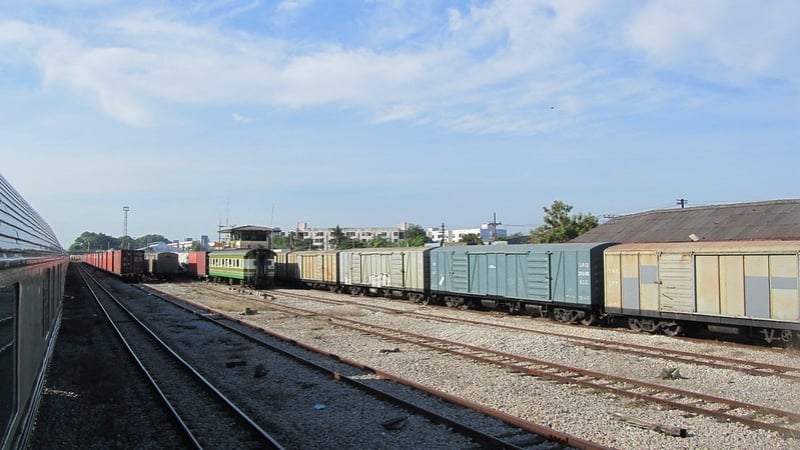The direct train service between Kuala Lumpur and Bangkok is officially making a comeback by the end of 2025. This long-awaited revival offers travellers a scenic and stress-free way to cross between Malaysia and Thailand. It’s a welcome move that will make overland travel between the two capitals easier than ever.
A seamless ride returns

Image credit: SompornPramong via Canva Pro
After years of relying on connecting trains at Padang Besar, passengers will soon enjoy a direct rail link between the two capitals. The plan was confirmed following talks between Malaysia’s Transport Minister, Anthony Loke, and Thailand’s Deputy Prime Minister and Transport Minister, Suriya Juangroongruangkit.
Both countries see stronger rail links as a way to boost tourism and business. Their rail operators now have three months to create an operational plan. If all goes according to schedule, trains will be running directly between the two capitals by late 2025.
What to expect
While specific details like departure times and ticket prices haven’t been announced yet, the new service is expected to eliminate the current need to transfer at Padang Besar. For passengers, this means a smoother, more efficient journey across the Malaysia–Thailand border.
The route will make use of existing railway infrastructure, with improvements to be made in scheduling, ticketing integration, and more. This is part of a broader effort to make the experience more accessible to both domestic and international travellers.
More cross-border connections on the horizon

Image credit: shankar s. | Flickr
There’s more to come. Thailand is also looking to extend its rail service from Sungai Kolok into Malaysia’s Rantau Panjang and Pasir Mas. These additional links would further strengthen the transport corridor between the two countries, although track upgrades will be required before operations can begin.
A boost for tourism and business
The revived route is expected to give the tourism sector a solid boost, attracting travellers who prefer exploring Southeast Asia overland. It also presents an alternative to air travel, appealing to environmentally conscious travellers and those looking to reduce their carbon footprint.
Business travellers and commuters alike stand to benefit from the improved connectivity. The increased ease of movement is expected to support regional commerce and collaboration.
Part of a bigger picture

Image credit: David Jones | Flickr
This project is part of a wider plan to improve rail travel across Southeast Asia. Thailand, for instance, is steaming ahead with a high-speed rail project connecting Bangkok to Nong Khai. This project will eventually link up with the infrastructure of China’s Belt and Road Initiative.
Also read: Thailand-China High-Speed Rail Projected to Launch in 2030
With the Kuala Lumpur–Bangkok train getting back on track, travellers can soon look forward to an easier, greener, and more scenic way to move between these two vibrant cities, no flights required.




